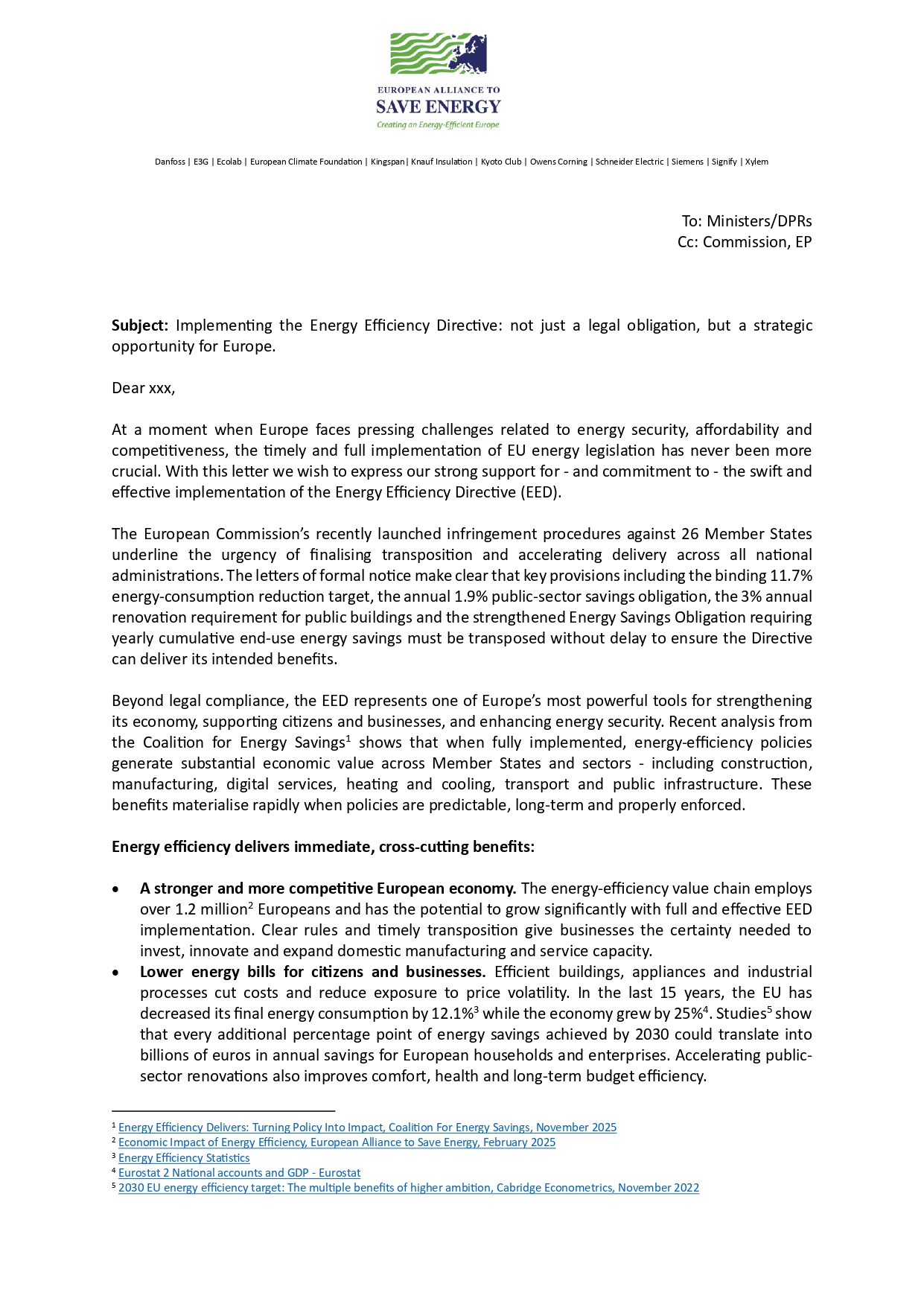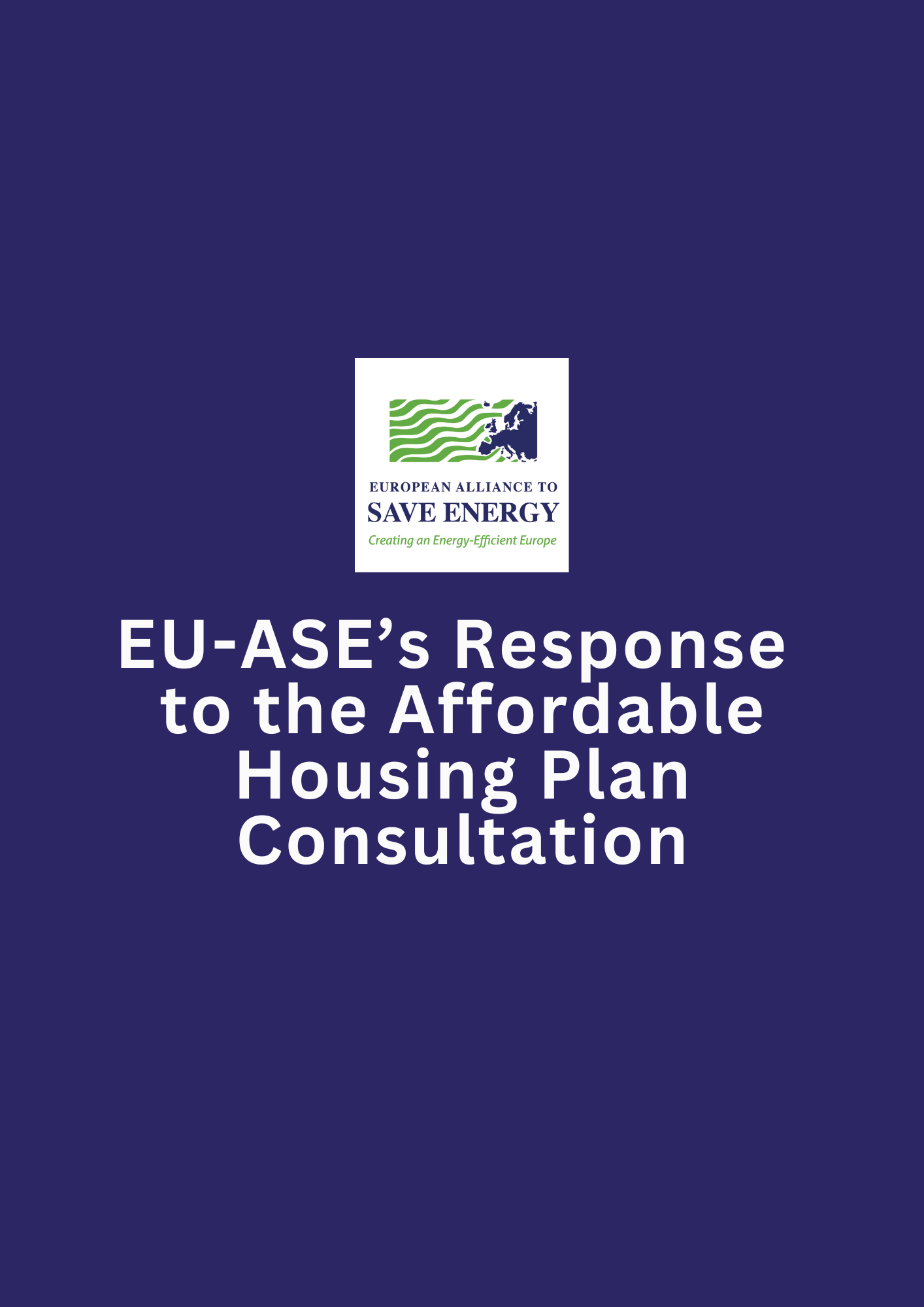In this context, energy efficiency in data centres is not a technical detail but a strategic policy lever. It is directly linked to the EU’s objectives on climate neutrality, energy security and strategic autonomy. Stronger and clearer efficiency requirements for data centres can deliver a material contribution to EU energy efficiency and climate targets, while reducing pressure on electricity grids and limiting the need for costly new generation and network investments.
By 2030, efficiency measures could realistically offset between 30 and 45 percent of the projected increase in electricity demand from data centres, saving 20 to 30 terawatt-hours per year. This is electricity that Europe would not need to generate, transport or store. In system terms, energy efficiency is the fastest, cheapest and most resilient capacity the EU can deploy.
Efficiency will not stop digital demand from growing. But without ambitious efficiency policies, data centre expansion would be almost twice as expensive for the European energy system, with higher costs ultimately borne by consumers, industry and public budgets. This is why efficiency must be treated as a strategic enabler of digital growth, not as a secondary optimisation exercise or a regulatory burden.
The sector itself has already demonstrated what is achievable when technology, economics and incentives are aligned. Over the past two decades, facility energy overheads in data centres have been reduced by almost half, with average PUE values falling from around 2.5 to close to 1.1. At the same time, computing efficiency has improved by roughly a factor of one hundred, with energy use per computation falling by about 99%.
As data centres increasingly resemble energy-intensive industrial installations, their impacts on electricity grids, water resources and local communities can no longer be treated as peripheral issues. This makes the case for EU-level coordination and regulation even stronger, ensuring a level playing field across Member States and avoiding a fragmented approach driven by short-term competition for investment.
Yet in many EU digital policy debates, speed, scale and global competitiveness still dominate the narrative, while efficiency is perceived as a potential constraint on deployment. At the same time, the benefits of efficiency are systemic and long-term, whereas the political and economic pressure to build new capacity is immediate.
Addressing this imbalance requires a shift in EU political framing.
Energy and water efficiency must become explicit priorities in EU digital, AI and industrial strategies, not issues delegated exclusively to energy policy. Stable, predictable and coherent EU regulation is essential to provide certainty for investment and innovation. And sustainable digital infrastructure must be clearly framed as a competitive advantage for Europe, strengthening resilience, lowering system costs and supporting climate objectives.
If the European Union wants digital growth that is compatible with its Green Deal, its energy security goals and its ambition for strategic autonomy, energy efficiency in data centres must move from the margins to the core of EU digital policy.
Monica Frassoni
President, EU-ASE
Brussels, 29 January 2026




